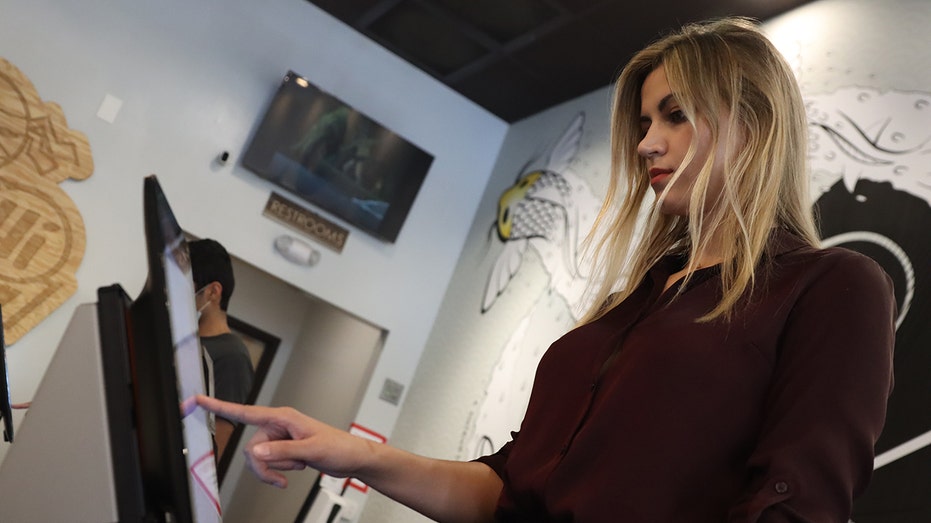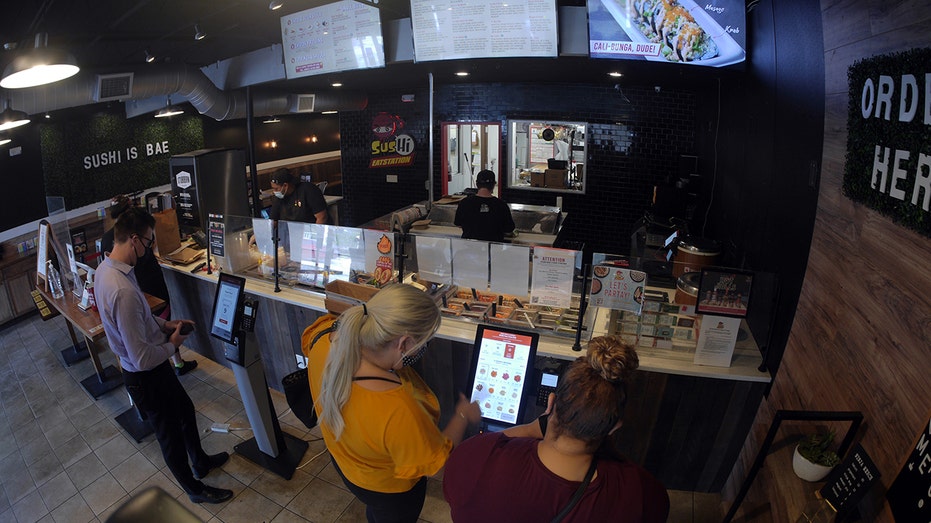Kiosk model becomes lifeline for Florida restaurateurs during coronavirus pandemic
Three months into the pandemic, the entrepreneurs turned to Grubbrr, a company that specializes in kiosk payment technologies
Two Florida restaurateurs -- whose eateries were arranged like Chipotle-style assembly lines -- had to overhaul their entire business model early this year in a bid to not only survive the coronavirus pandemic but also to avoid layoffs.
Robert and Teresa Ly, co-founders of Sus Hi Eatstation restaurants, told FOX Business on Wednesday that they quickly found their lifeline: kiosks.
RESTAURANT INDUSTRY LEADER: CORONAVIRUS AID URGENTLY NEEDED TO BATTLE 'FIGHT OF OUR LIVES'
Previously, customers would line up at the counter, order with one of the employees and then walk down the line as the food is prepared in front of them.
However, when the pandemic struck, forcing droves of eateries to shutter, the Lys realized that the business model that had served them since 2011 would no longer work if they wanted to keep guests and employees safe.

(GRUBBRR)
And although the machines were a huge "pivot" --- and expense -- they became a "lifesaver" for each of their nine restaurants by giving their customers a sense of safety.
"It gave [customers] a sense of comfort and safety that we didn't have before," Robert Ly said.
40% OF RESTAURANTS TO CLOSE WITHIN 6 MONTHS WITHOUT MORE CORONAVIRUS AID
Early on, the entrepreneurs used a "makeshift" kiosk for pickup orders through their preexisting system. However, the system was flawed and created a lot of issues.
Three months into the pandemic, the entrepreneurs turned to Grubbrr, a company that specializes in kiosk payment technologies. They implemented two kiosks at each of their restaurants across the state, costing them between $5,000-$7,000 per location. To convert all of their locations, they spent between $40,000-50,000.
The investment paid off.

Customers order food at a Sus Hi Eatstation restaurant. (GRUBBRR)
By August, foot traffic skyrocketed. Some of their nine locations saw sales increase by 50% while others increased between 10% to 20%, although the increase in occupancy restrictions had also helped, Robert Ly added.
In their fight for survival, the Lys learned the best thing to do in this type of industry is to learn how to adapt and pivot quickly. This can pertain to changes in customer needs as well as the overall environment.
"It's a battlefield in a sense," Robert Ly said. "I guess you have to take the leap of faith at times and not be afraid of having to change."
GET FOX BUSINESS ON THE GO BY CLICKING HERE
However, in doing so, Teresa Ly said it forced them to take a closer look at their operations and the safety of their people.
"When everything changed, that was really the first thing on my mind was how do we take care of our people? How do we keep them employed?" she recalled.
They were able to do just that.
By adapting to the seamless takeout system -- while also forgoing their salary for a short stint -- the Lys were able to weather the last eight months without having to lay off any of their workers.
All nine locations, which stretch across Central Florida, are serving customers at 100% capacity with the kiosk models, which will remain in place for the foreseeable future.
"We're not sure if we're even planning to go back to our old model," Robert Ly said. "This is working so well for us."
CLICK HERE TO READ MORE ON FOX BUSINESS




















